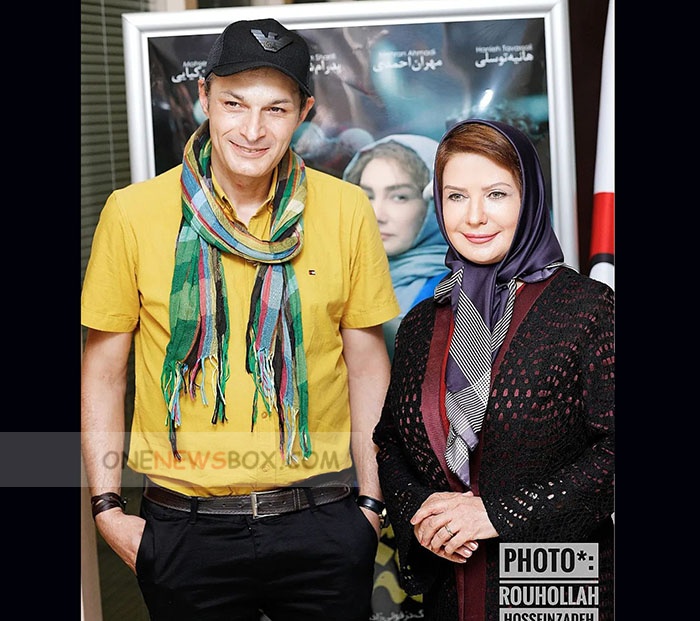A Cinematographic Revolution chronicles how persian films reflected contemporaneous society and often presaged social change. It shows how mainstream commercial cinema served as a propaganda tool for both the monarchy and the fundamentalist religious regime, recounts the sporadic efforts of some filmmakers to reveal grimmer social realties, and the struggles against censorship and traditional cinematic formulas by such pioneers as Bahram Beyzai, Sohrab Shahid Saless and Parviz Kimiavi and pre- and post-Islamic revolutionary ‘new wave’ filmmakers such as Amir Naderi, Rakhshan Bani-Etemad, Dariush Mehrjui, Mohsen Makhmalbaf, Jafar Panahi, Bahman Ghobadi and Abbas Kiarostami.
The actors in public screening of the film
[custom_adv]

